5 natural beauty trend predictions for 20215 natural beauty trend predictions for 2021
Here's all the natural beauty trends intel you need to enhance any natural product store's personal care section for the new year. And a bonus: 20 innovative brands to watch.

Like just about every other industry, natural beauty and personal care has been greatly impacted throughout 2020 by shifts in consumer shopping habits, a heightened awareness of sustainability and the demand for corporate transparency. Luckily, natural beauty brands that have prioritized ethical supply chains and a multichannel presence for years are already ahead of the curve.
Skin care still boasts the lion's share of sales in the natural and organic personal care market (41.7%, according to recent Nutrition Business Journal data). But 2020 also saw spikes in hand sanitizer and soap sales, for obvious reasons.
Read on to learn about the drivers behind what will be some of 2021's biggest natural beauty trends.
1. Simpler is better.
Ingredient lists, as well as the number of steps in a consumers' skin care routines, will continue to shrink in 2021. As formulators home in on the most potent clean beauty ingredients and delivery methods, there is no longer a need for the 12-step Korean skin care routines of yesteryear. Shorter ingredient lists mean fewer possibilities for adverse reactions and less room for irritating fragrances and fillers. And fewer ingredients translates to a reduction in packaging waste, which is on the forefront of shoppers' minds as the single-use plastic crisis rages on.
Simplicity natural beauty trends manifestations, from left to right: Shea Moisture 100% Pure Baobab Oil, The Nue Co. Topical C, Juice Beauty Stem Cellular 2-in-1 Cleanser, Badger SPF 35 Sport Sunscreen Cream.
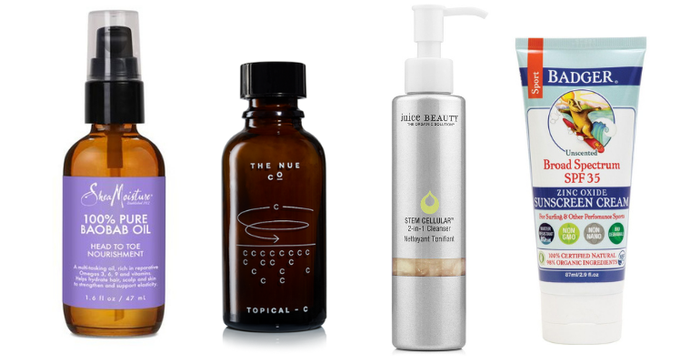
2. Microbiome love.
When the good bacteria that lives on the skin and in our guts is out of whack, skin trouble (and mood trouble) ensues. Scientists are in the process of linking microbiome performance to many chronic illnesses and seemingly incurable skin conditions, so it makes sense that innovation in the personal care category has revved up in 2020. Topical prebiotics and probiotics and beauty-from-within supplements will dominate this 2021 personal care movement.
Microbiome product manifestations, from left to right: Tom's of Maine Prebiotic Moisturizing Bar Soap, Mother Dirt Probiotic Hydrating Hair Wash, For the Biome Invigorate Powder Mask, HUM Skin Squad Pre- and Probiotic.
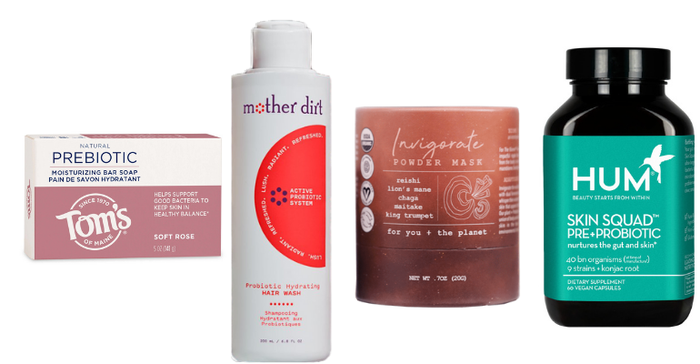
3. Sustainable ingredients and packaging.
Eco-friendly ingredients are popping up everywhere. Silk protein could soon replace petroleum-derived chemicals in soap, and new technology has even allowed one company to produce (or brew, rather) palm oil from a lab using microbes. Additionally, while single-use plastic is a perennial thorn in the side of this incredibly wasteful industry, more beauty brands than ever are incorporating recycled and refillable packaging into their product lines. Bath product company Bathing Culture, for instance, allows its customers to refill their glass soap bottles at select natural products stores nationwide.
And in a reflection of the plant-based swell across the natural products industry, New Hope Network's NEXT Data and Insights team has identified many botanical ingredients including hemp CBD, sea buckthorn, shea, bakuchiol and radish extract as on the rise in the natural personal care space. Hemp-derived products like recent NEXTY Awards winner Humanist Beauty's signature CBD facial oil lie at the intersection of sustainability, novelty and effectiveness.
Product manifestations that represent an eye on sustainable natural beauty trends, from left to right: Plus Ultra Biodegradable Replacement Brush Heads, Bathing Culture Mind and Body Wash One Gallon Refill, Humanist Beauty Herban Wisdom Facial Oil, Dr. Bronner's Regenerative Organic Certified Coconut Oil.
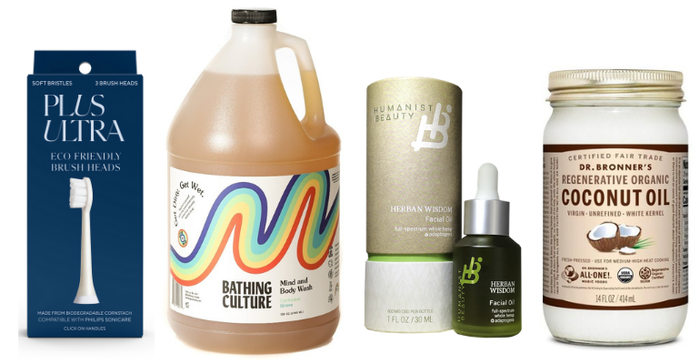
4. Third-party verifications and transparency.
U.S. cosmetics and personal care products are notoriously overlooked when it comes to FDA regulation, but the majority of today's shoppers are savvy enough to spot third-party seals like those from ECOCERT and the Environmental Working Group. Terms such as "organic" and "natural" often get thrown around (legally) in this space when the products themselves are anything but, so it is important for brands to go above and beyond to build trust by getting involved with third-party programs. Note that personal care brands can still only obtain a USDA organic seal if the product is food grade.
Product manifestations that represent trust and transparency, from left to right: Moon Valley Organics Herbal Lotion Bar [USDA Organic certification], Tower 28 SOS Daily Rescue Facial Spray [National Eczema Association Seal of Acceptance], Natracare Organic Cotton Tampons [Soil Association Organic certification], Cocokind Sea Moss Exfoliator [USDA Organic certification].
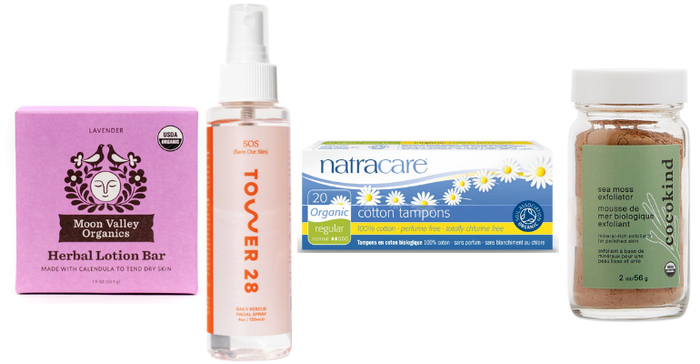
5. Inclusion across gender and race.
Diversity and inclusion is the name of the game when it comes to natural cosmetics and personal care in 2021. This means gender-neutral marketing, makeup (and mineral sunscreen!) that suits all skin tones, a more relaxed outlook on aging skin and greater support for BIPOC founders (Black, Indigenous and people of color) in the natural personal care space. It also points to the growing trend of personalization in the natural beauty space—think custom-made serums and app-driven skin analysis kits. Consumers are allocating money toward companies that align with their values when it comes to diversity and inclusion, and as Gen Z gains spending power this trend is poised to accelerate even more.
Beauty products that represent diversity and inclusion, from left to right: Inika Organic Certified Organic Liquid Foundation with Hyaluronic Acid, Humanrace Skincare Humidifying Cream, Alaffia Beautiful Curls Curl Activating Leave-In Conditioner, Atolla Custom Serum.
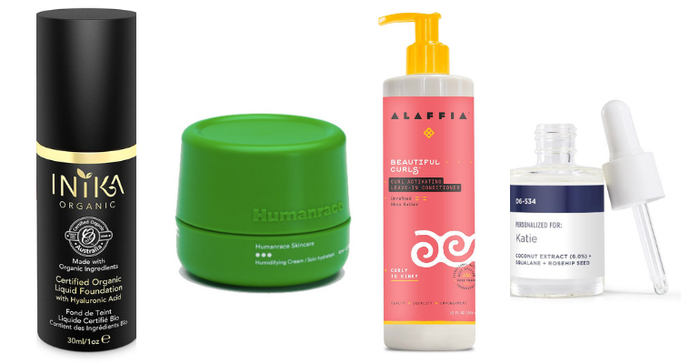
About the Author
You May Also Like





